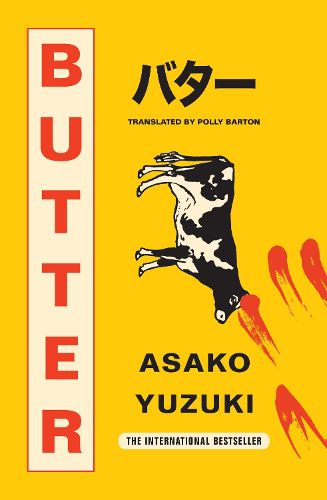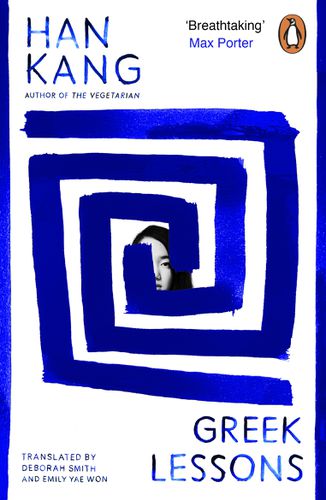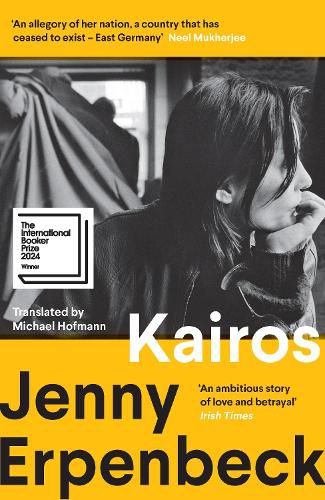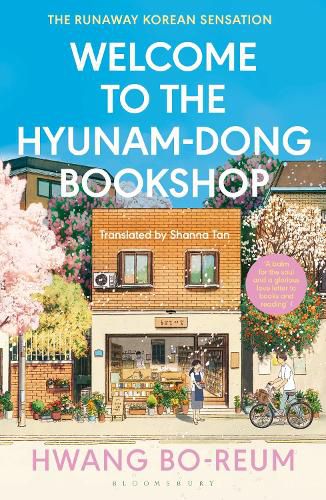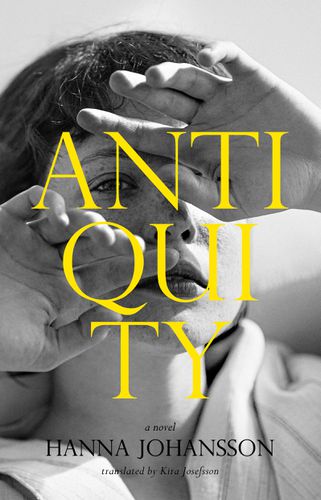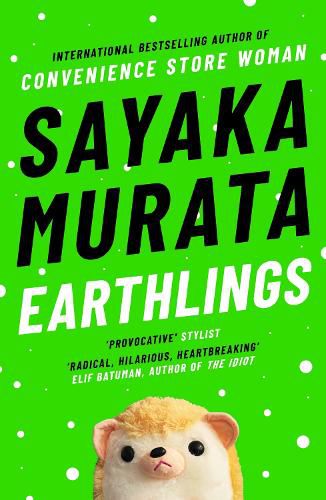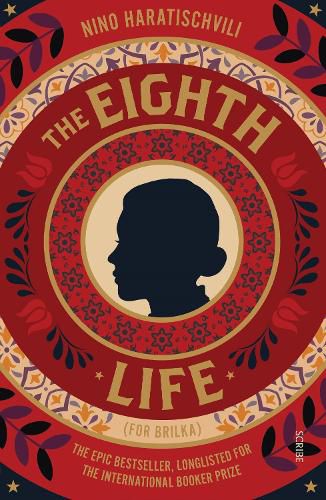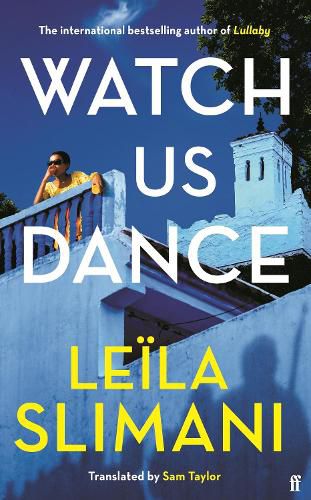There's never a bad time to pick up one of these remarkable novels from women writers around the world. But since August is also Women in Translation Month, this is a particularly good time to seek out a writer you're not already familiar with.
Women in Translation Month was created in response to the dearth of women writers being translated into English. Ten years later, it's a growing movement to champion international writers and help readers discover books they might not find on a mass market shelf. Lots of our booksellers are keen readers of translated fiction, so our shops are proud to have a great array of international fiction from diverse writers. To help you get involved with the Women in Translation movement, here are some of our top picks, with our booksellers' own words on why you should read them.
Butter by Asako Yuzuki, translated from Japanese by Polly Barton
From our staff review: 'Butter by Asako Yuzuki is a twisty and quirky thriller that delves deep into the connections between food, gender and domesticity to ask: what is the true power of a good meal?
Rika is a reporter accustomed to late nights and convenience store ramen, determined to make it in the man’s world of publishing. Manako Kajii is her ticket to a big story: reticent, opinionated and obsessed with food, Manako stands accused of luring three men in with her delicious cooking and murdering them for their money.
Asako Yuzuki fills Butter with mouth-watering descriptions of sumptuous meals and thoughtful commentary on the constricting expectations placed on women. Food becomes the vessel for this commentary, as Rika’s austere, functional dinners make way for decadent, unashamed feasts as her worldview slowly shifts, plate by plate . . . Butter is the perfect read for anyone who wants a darkly compelling novel about the vital importance of high-quality butter.'
The Postcard by Anne Berest, translated from French by Tina Kover
From our staff review: 'A postcard arrives in the Berest family’s mail in 2003, containing only four handwritten words, each the given name of a relative who died in the Holocaust . . . This book is an incredibly compelling – and devastating – family story that uses the special powers of literary narrative to enrol readers in its project of remembering, a practice that is vital, political, personal, and universal. It also illuminates poetically the contemporary journey of Anne, a secular Jew, who is seeking to understand more about her Jewish identity and her experience of intergenerational trauma.
Deep research supports the book’s historical detail, and the painstaking detective work involved in piecing together the story of a family whose existence was supposed to be erased is so alive on the page. The reader is there every step of the way, as new clues are discovered . . . and the lives and experiences of their extended family are lovingly recreated. Once I had started reading, it was basically impossible for me to do anything else until the source of the postcard was found.'
Greek Lessons by Han Kang, translated from Korean by Deborah Smith & Emily Yae Won
From our staff review: 'A gloomy yet simultaneously brilliant novel, Greek Lessons interweaves two perspectives, one of a woman who has lost her ability to speak, and of her teacher who is slowly losing his sight. Through these entwining narratives, Han explores what it means to make meaning through language, and what it means to lose language. Greek Lessons spirals out from the intricate grammatical structures of ancient Greek, in particular "the middle voice", which allows within a single word for a subject to be both acting and acted upon . . . I found this novel its most fascinating when it touched on translation, not only between languages, but of how language translates the senses. It shone for me when it reached for beauty in philosophy and found that just the act of thinking was beautiful: "Simply because that wondering was sensually beautiful and touched the electrode inside me that feels beauty."'
Kairos by Jenny Erpenbeck, translated from German by Michael Hofmann
From our staff review: 'The title of Jenny Erpenbeck’s fourth novel refers to a tenet of ancient Greek philosophy – the idea of the right or critical moment to act. Just how kairos impacts the novel’s two major characters becomes clear in its final gut-punch revelations. But before then, Erpenbeck recreates, in both earthy and erudite detail, the rhythms and smells of life in the German Democratic Republic in its final days.
Katharina, a 19-year-old student, is running late for her East Berlin bus. It’s July 11, 1986. In three years, the Berlin Wall will fall; Germany will begin the road to reunification. Inside the bus, Katharina locks eyes with Hans, a married 53-year-old writer and freelance radio presenter. A moment presents itself. They seize it. A coffee, then to his apartment. They listen to Mozart, make love, their relationship unfolding from here as a symbiotic one, rendered with near claustrophobic precision by Erpenbeck in an impeccable translation by the poet, Michael Hofmann.'
Welcome to the Hyunam-dong Bookshop by Hwang Bo-reum, translated from Korean by Shanna Tan
From our staff review: 'In a world where we are increasingly pressured to turn minutes into money, the act of devoting yourself to the hours it takes to finish a novel resists what larger society might see as a valuable use of time. But Hwang truly gets what it’s like to love reading with every fibre of your being, and to want to chase your own versions of happiness and success in a world that wants to define these things for you. Hwang’s characters grapple with real-world dilemmas: is it worth following my dreams? Should I find a job doing something I like or something I’m good at? The answer to these questions is that there will be different answers for everyone, but life would be a lot kinder if we accepted the answers people choose for themselves. This book reminded me of I Want to Die but I Want to Eat Tteokbokki and Convenience Store Woman, but it’s also a book I don’t want to compare to others, for its level of sincerity is unparalleled.'
Antiquity by Hanna Johansson, translated from Swedish by Kira Josefsson
From our staff review: 'Our narrator – lonely, introspective, of uncertain reliability – is on the Greek island of Ermoupolis, drawn there by her adoration for and desire to please an older woman, Helena. However, Helena’s younger daughter, Olga, provides at first a source of annoyance, then intrigue. As Helena’s presence fades into the background, our narrator becomes more and more obsessed with her own ego, power, and desire for the girl she saw as an obstacle . . .
Johansson is masterful at creating discomfort and crafting tension. The stranger, our narrator, tears apart bonds and social fabrics quietly – we can see, but no one else can. I found myself put on edge, in an addictive way, by each phrase. Johansson takes you slowly through a summer, and, despite yourself, you will let your feet drag and fix your eyes on the fascinatingly terrible thing in front of you.'
Earthlings by Sayaka Murata, translated from Japanese by Ginny Tapley Takemori
From our staff review: 'When we meet Natsuki she is a child and suffering cruelty and abuse from the adults in her life. Natsuki finds comfort in believing magical powers have been bestowed upon her by her friend Piyyut: an alien who is visiting earth in the form of a small, plush hedgehog. During visits to a family home in the mountains, Natsuki forms a deep bond with her cousin, who admits that he too is an alien.
As a grown up, Natsuki is vehemently against becoming part of the ‘baby factory’. She is married for convenience only, to a man who also resents and resists the pressures of society. When Natsuki and her husband take a trip back to the family home, a reconnection with her cousin mutates into an all-out rejection of society and shedding of trauma. The book spirals into absurdity and horror, but the tone is never anything but matter of fact . . . Earthlings is an outrageous book and I absolutely loved it.'
The Eighth Life by Nino Haratischvili, translated from German by Charlotte Collins & Ruth Martin
From our staff review: 'The Eighth Life is the saga of a Georgian family – its intricate, interconnected lives, its losses, triumphs, sadnesses, and great loves, set against the sweep of Russian history across the twentieth century. This is the deft detailing of a part of European history lost to most of us, where readers will relish in the rich characterisation of the cold, pinched and hungry faces of those securely under the thumb of communist rule.
If you like lots of characters and get excited by a list of names and family trees, then The Eighth Life is for you. This book is for those readers who want to entirely give over their time and their attention – it’s for those of us sick of our routinely dip-in, dip-out quick consumption and the short, wandering attention spans afforded to us by so much of current mainstream media. If you have the time and inclination to really absorb yourself with great contentment in a dramatic, all-encompassing novel, then this is for you.'
Watch Us Dance by Leïla Slimani, translated from French by Sam Taylor
From our staff review: 'This book deserves your full attention, so don’t even bother picking it up if you don’t have a few quiet hours ahead of you, perhaps curled up in a big snuggly armchair with a cuppa or a glass of pinot. To fully appreciate the exquisite writing all other distractions must be removed. Put the dog and the cat and the children outside and close the blinds. And now, let me introduce you to Mathilde Belhaj and her dysfunctional family, and their dysfunctional country . . .
With an Allende-like brushstroke, Leïla Slimani paints a remarkable portrait of a people and place I knew nothing about before I read this book. This family drama, set in dramatic times, at once feels epic in scope, but also intricate in detail, each character is explored in depth, as well as the world around them: ‘Since it had become the theatre of his heartbreak, he had begun to like this city. He walked his melancholy through it . . .’'
Want more inspiration for your reading list? Check out our Women in Translation collection, and the hastag #womenintranslation on Instragram.


